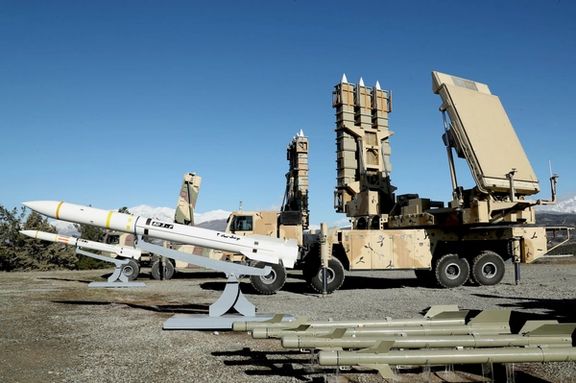Iran says air defense capabilities have multiplied as country rebuilds

Iran’s top military commander has announced a sharp increase in the country’s air defense capabilities, including a fivefold boost in detection and tracking systems.

Iran’s top military commander has announced a sharp increase in the country’s air defense capabilities, including a fivefold boost in detection and tracking systems.
“The country’s air defense readiness—especially in detection, identification, and elimination of aerial threats—has advanced significantly compared to last year,” Major General Mohammad Bagheri, the chief of staff of Iran’s armed forces, was quoted as saying on Monday by IRGC-Tasnim News Agency.
Bagheri said radar and surveillance systems monitoring foreign movements have increased fivefold, while systems for intercepting and destroying enemy aircraft have improved by two to three times.
He added that Iran’s command-and-control systems are functioning efficiently and that the country’s airspace is under constant surveillance.
“Our air defense forces control the skies 24/7 and regularly conduct drills to prepare for any possible scenario,” he said.
Bagheri warned Iran’s adversaries that any violation of its airspace would have serious consequences. “Enemies of the Iranian nation should know that any intrusion will result in extensive damage and costs far greater than they expect,” he said.
Last October, Israel carried out a major strike on Iranian targets, destroying large sections of the country’s air defense infrastructure.
The attack followed two massive airstrikes from Tehran against the Jewish state while Israel was also fighting Iran's allies across its borders amid the Gaza war.
Reports in Fox News and the Wall Street Journal said all of Iran’s S-300s were taken out of action.
Israeli Prime Minister Benjamin Netanyahu said at the time: “We severely damaged Iran’s defense systems and its ability to export missiles."
At the time, the Institute For The Study of War said the Israeli military had conducted precision strikes targeting around 20 locations across Iran, including facilities tied to the Iranian drone and missile programs and air defense network.
"Even though the strikes caused relatively little visible destruction, they will likely have significant and long-lasting consequences by disrupting Iran’s ability to produce certain kinds of ballistic missiles for itself and its partners as well as by severely degrading Iran’s ability to defend against future air attacks," the analysis said at the time.